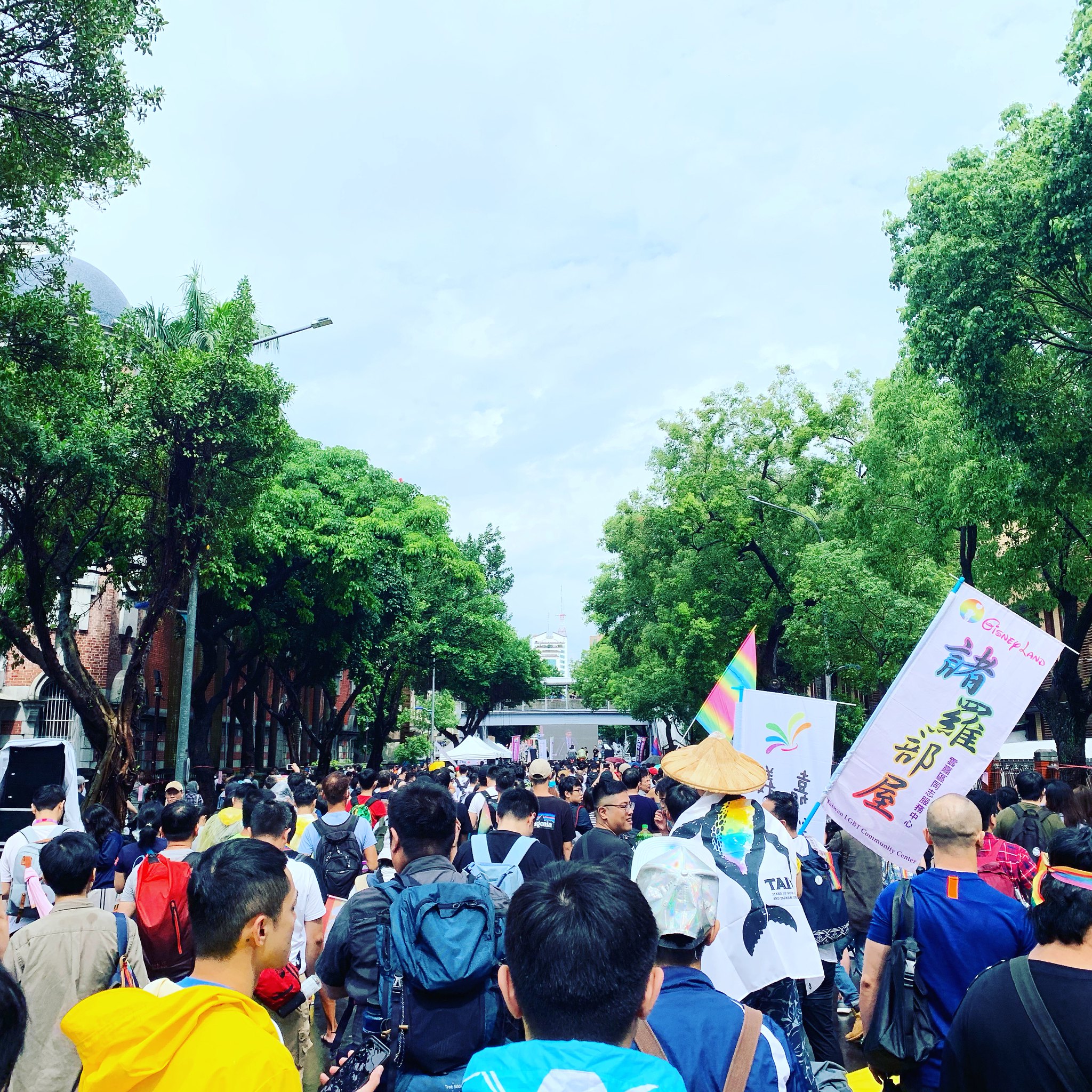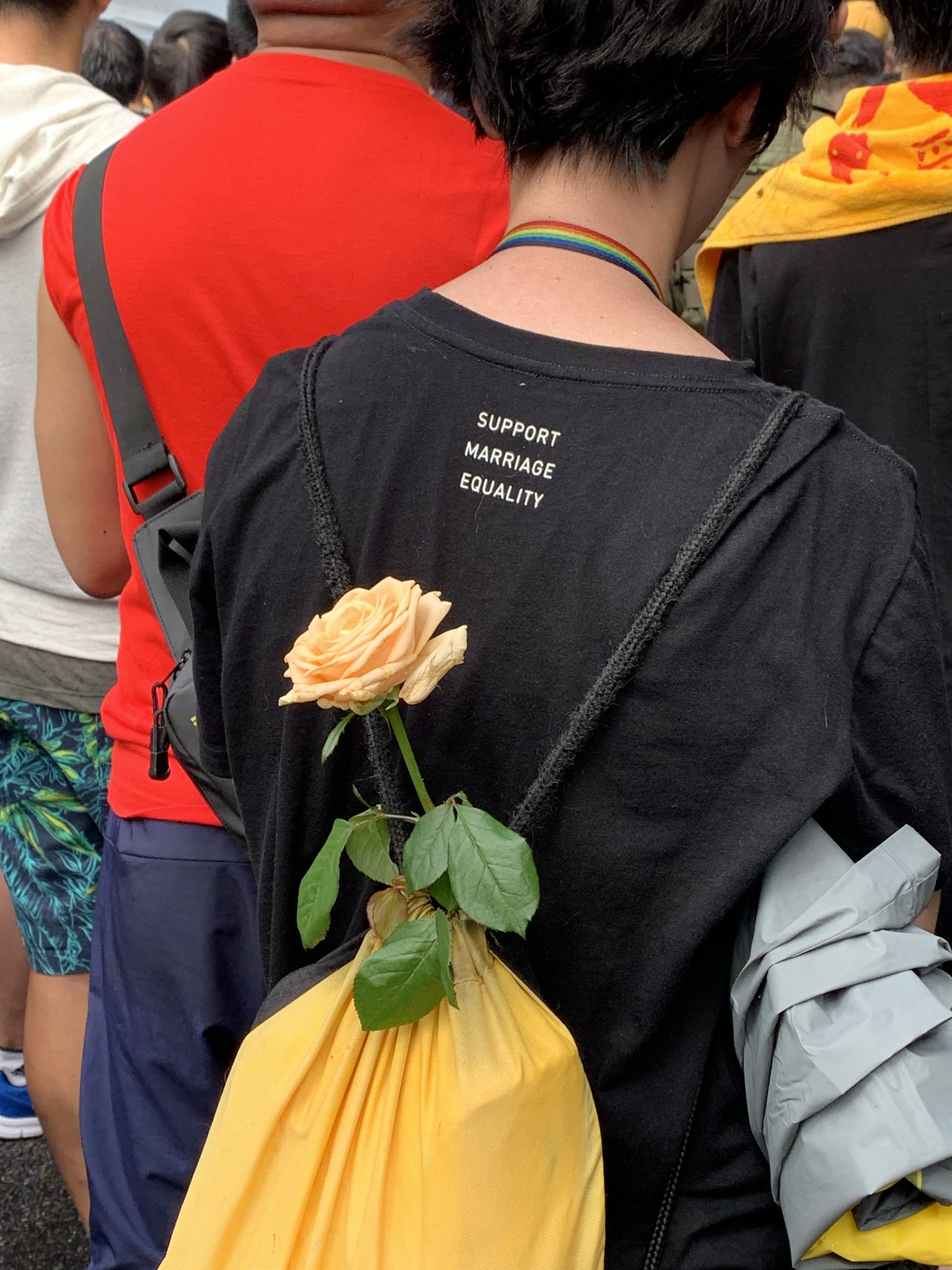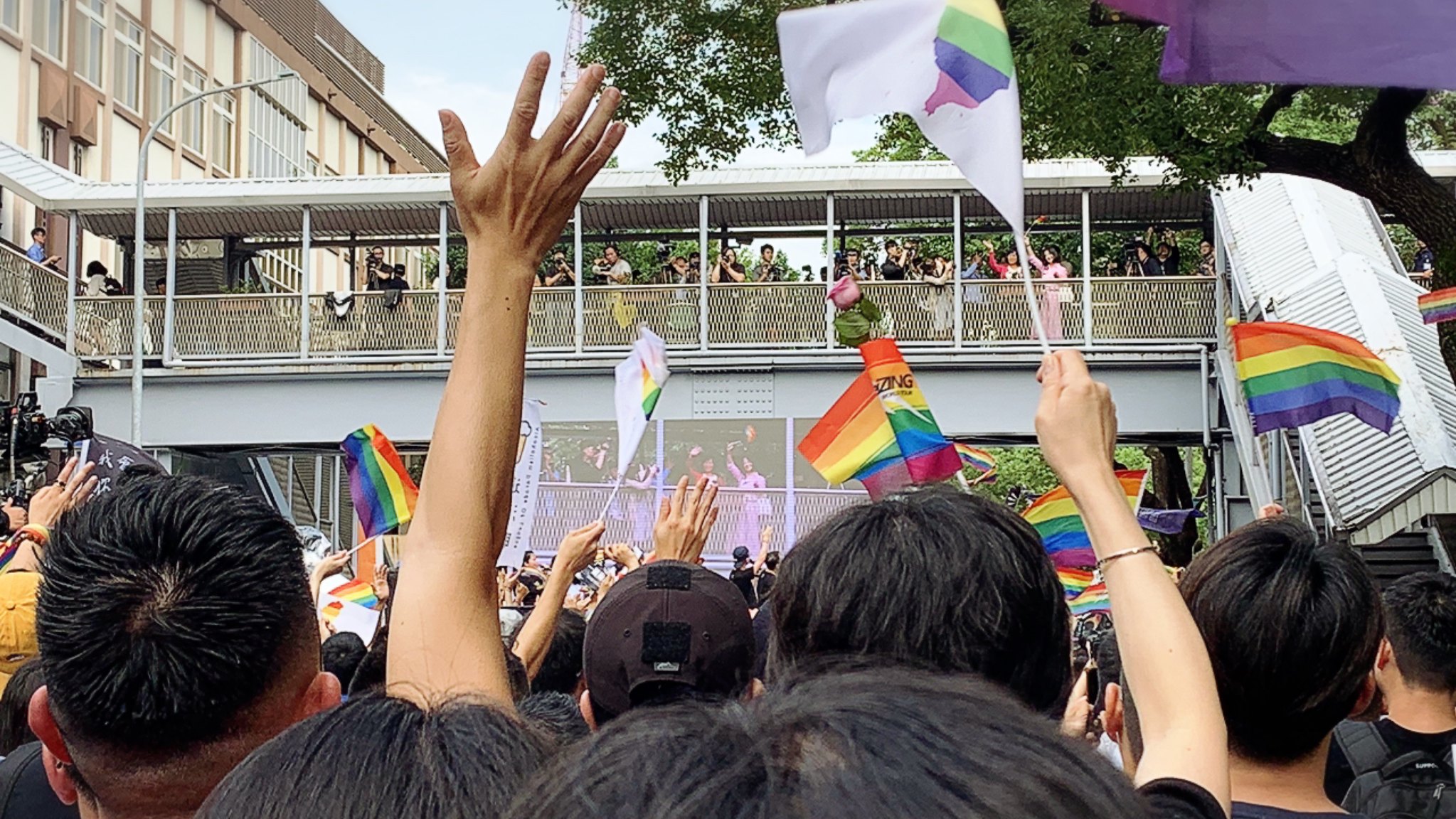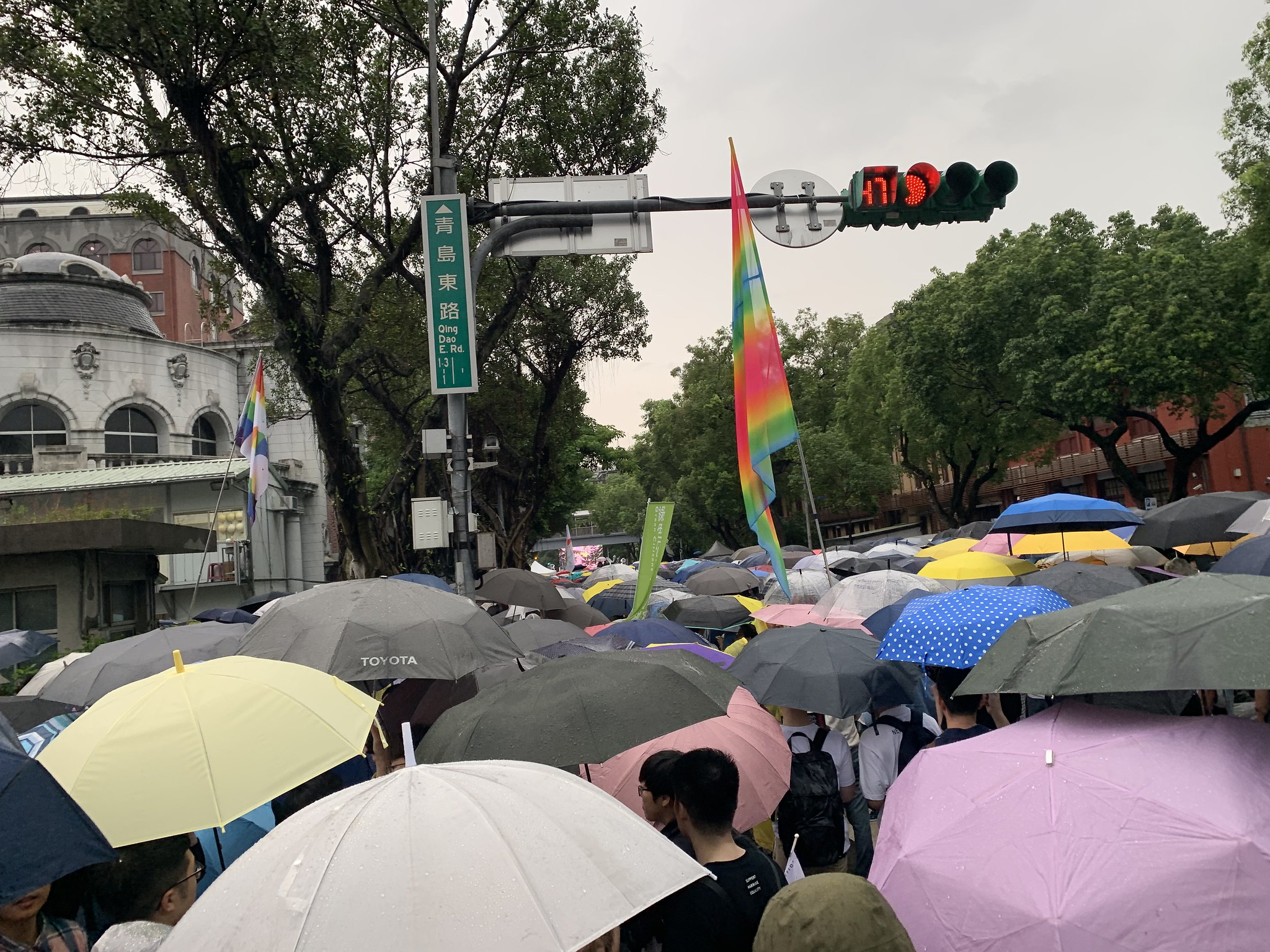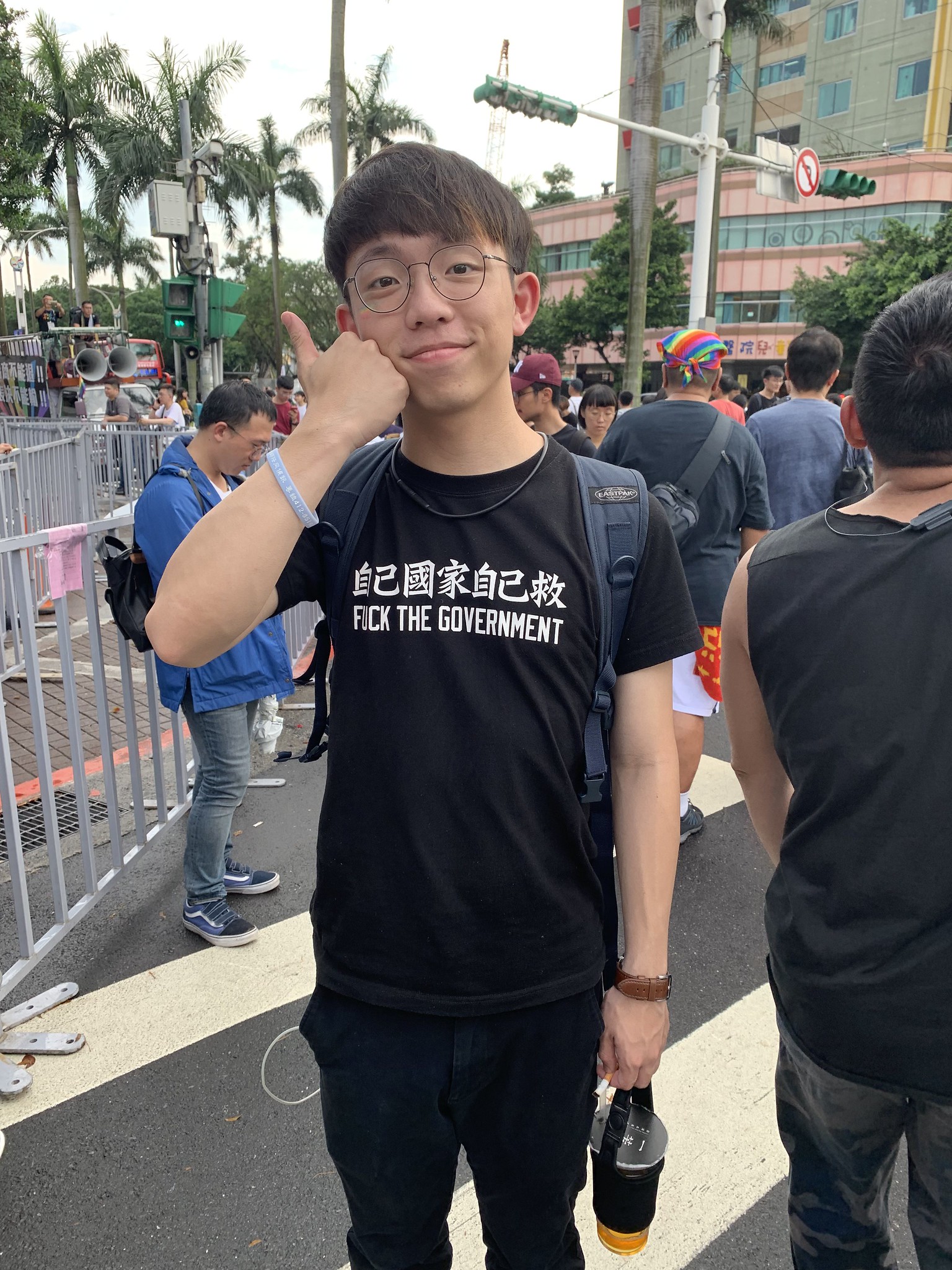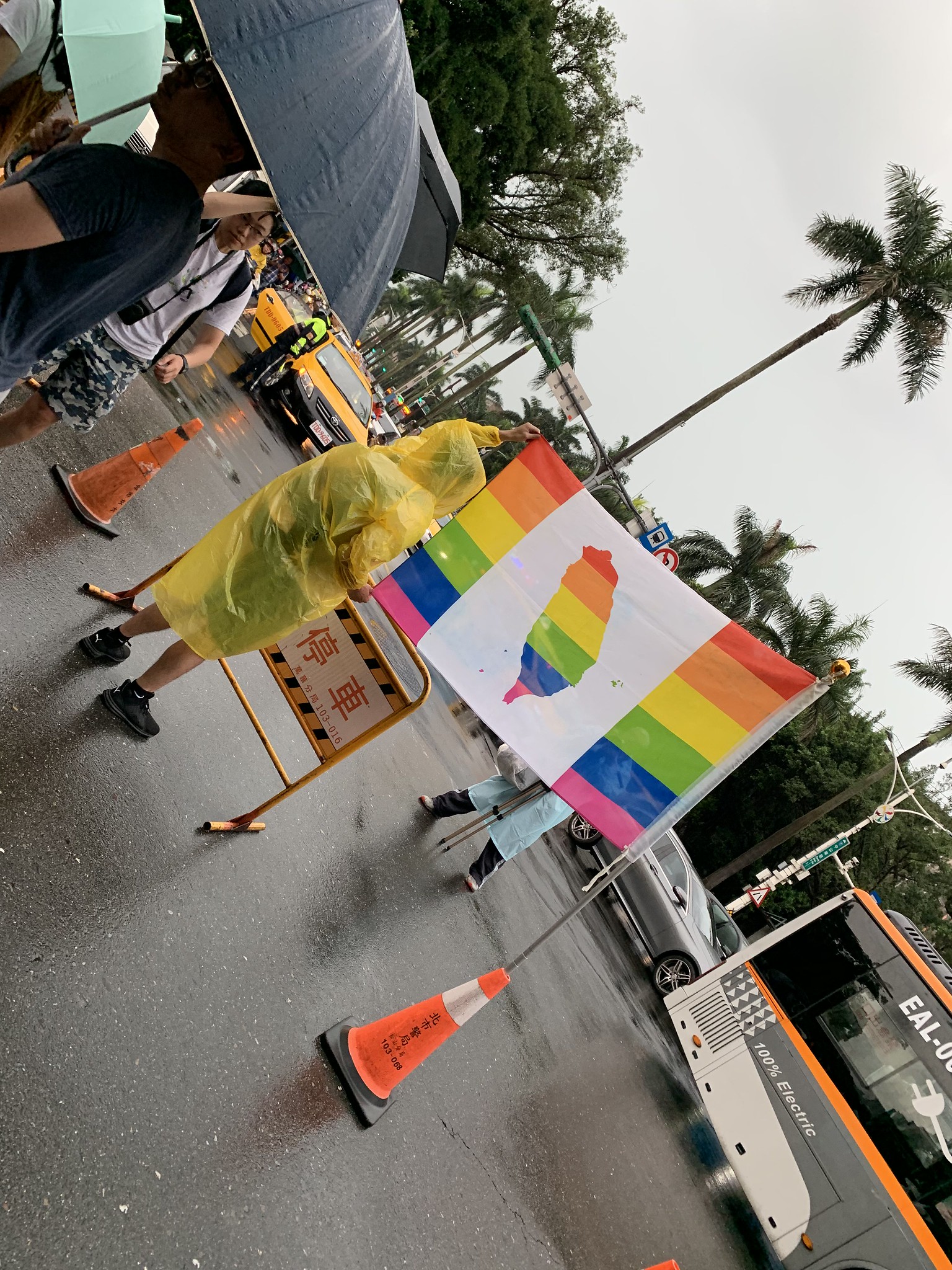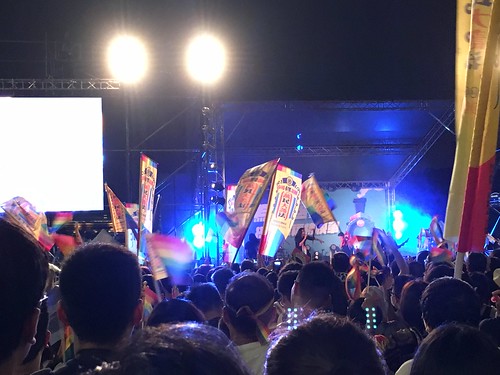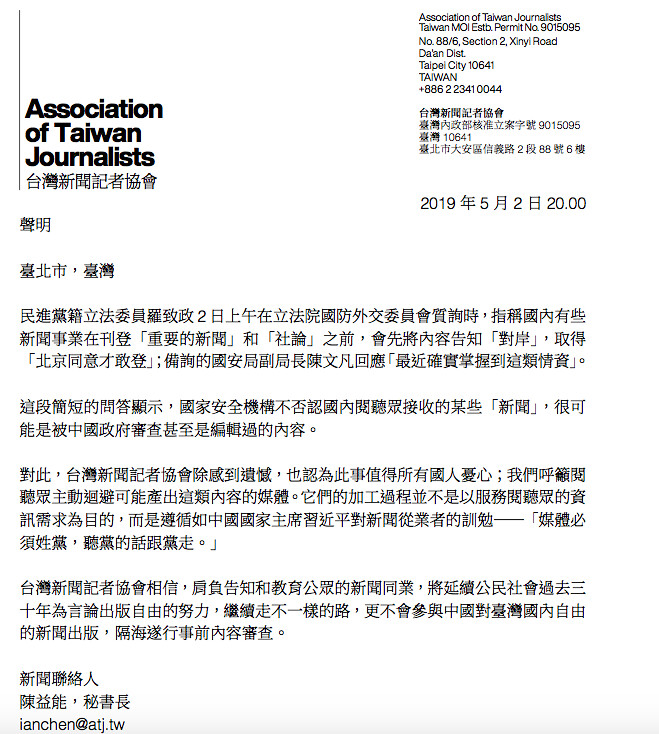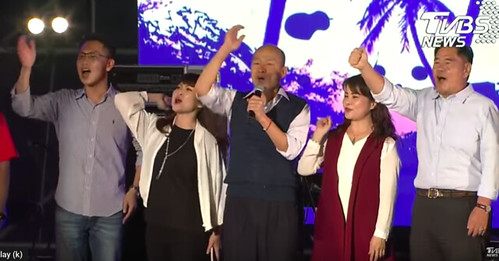 |
| The future |
I set out yesterday with two goals: to check out the inflatable 'tank man' (the iconic protester from the Tiananmen Square massacre) that has appeared in front of Murderous Dictator Memorial Hall as this is the 30th anniversary of those tragic events, and to get some reading done for my dissertation. My route took me through Freedom Square, where I encountered some anti-gay protesters near the arched Freedom Square gate.
They claimed to be against the new same-sex marriage law because it went against "the will of the people" as laid out in that messed-up referendum last November, but in truth, they were simply anti-gay. Here's how you can tell.
A woman shouting into a microphone made points like:
"We voted against gay marriage in the referendum. But they passed it anyway. I ask you - is this democracy?"
Of course, that's not what happened in the referendum. As black metal frontman and Sexy Legislator Freddy Lim helpfully pointed out, the referendum didn't do that: it specifically (though unclearly) asked if people agreed with changing the civil code to allow same-sex couples to marry, or if that should be done by a separate law. The people voted not to change the civil code, but for 'the rights and interests of same-sex unions to be protected' (if I'm translating that right) through some other law. That is what the referendum questions said. Period, end of story, the end, buh-bye. They did not ask if we should not allow any kind of same-sex unions.
When the government voted to allow same-sex couples to register their marriages (and make no mistake, they are marriages), they not only did so through a separate law just as the referendum asked them to, but even took out the word 'marriage' in one of the articles as a compromise in a bill that was already a compromise. The bill does say couples can register their "marriage" in another article, but...that is what they have, isn't it? What else would it even be called? What gives the anti-gay side the right to define that word?
In any case, a referendum does not supercede a decision by the highest court. When the legislators acted, they acted in keeping with the principles of democracy (as opposed to populism), in which all people are equal under the law, and no group can vote away the rights or equality of another group. I doubt those protesters were unaware of this.
So no, they're not angry about the referendum. That's an excuse, and not a very logical one. They're angry because they hate gays.
In any case, they were all over the age of 50 or so, and there were maybe 20 of them. So when that woman said "I ask you, is this democracy?" I shouted back "YES!" (all in Mandarin of course).
"Can the government do this?"
"THEY CAN!"
Her: "No they can't!"
Me: "You don't understand how referendums work!"
Her: "This isn't democracy!"
Me: "If you don't like equal rights, go to China!"
I may have also laughed loudly at them. (By "may have" I mean, I did.)
 |
| So many more people than those angry folks at Freedom Square |
Anyway, some very polite police officers came up asked me nicely not to do that, and recommended I go to Ketagalan Boulevard just down the road, where I hadn't realized there was a big, super fun, super gay banquet being prepared. I've been working on my dissertation, okay? I can't keep up with everything these days. Anyway, they were really nice about it, and didn't even take my name...probably because white privilege.
I said "but they just hate gays! They don't care about the referendum!"
Police officer: "Yeah, I know. But they registered their little protest." (translated but pretty direct quote, which I think was pretty cool.)
I did leave - the police were super chill about it and that's fine - but not because I thought it was wrong to shout at some anti-gay protesters. They have the right under freedom of speech and assembly to voice their (bigoted) views. They don't have the right not to face consequences for those views, like being told they're bigoted in public. I didn't force them to stop or take away their microphone, and I couldn't have ejected them if I'd wanted to as it's public space and that's what freedom of speech means. So, no regret there.
I don't even regret doing it as a foreigner - they probably aren't going to be convinced that same-sex marriage is a local cause in Taiwan. They probably don't care that the anti-gay side is the one that turned to Western hate groups for funding and advice whereas pro-equality groups mostly kept their effort local (though I've heard that some foreign donations did come in late in the game). And I live here too - this is my home and what happens here affects me. As a resident, I also have the right to freedom of speech (really - look it up.)
But, I'd made my point and it was time to move on.
I passed the mass wedding banquet as it was being set up - a friend noted that it was organized by TAPCPR (the Taiwan Alliance to Promote Civil Partnership Rights) and again on my way home when it was in full swing. There were photo backdrops, musical performers, a huge 'flower car' stage and some vendors selling beer, water and promotional goodies. As the banquet was an official function, people who wanted to celebrate but weren't on the guest list came and pickicked on the perimeter. A large screen showing the events on stage was set up for them. The crowd was young, vibrant and enthusiastic. They'd finally grabbed a tiny corner of the privilege to be treated equally and humanely that society had denied them for so long. They were the future.
 |
| Picknickers - the main banquet was closer to the Presidential Office |
And let me tell you - it was huge. The crowd of thousands (including the banquet-goers) dwarfed the twenty or so oldsters across Jingfu Gate screaming falsehoods about the referendum. Though I didn't see it, I'm also told the oldsters had an audio recording of crying sounds and a hearse (!) at some point.
Which, LOL. Okay. I guess if you're that self-victimizing (seeing as same-sex marriage doesn't affect them at all) and imagine yourself downtrodden (despite being in the age and class that has held so much power and privilege in Taiwan for so long) you have to turn to histrionics.
So in the end, I went home thinking that I didn't really need to yell at them. Not because I was wrong to do so - I truly don't believe that I was, and don't think I actually broke any law - but because it simply wasn't necessary.
The huge crowd across the street, and all the happiness they exuded, made the same point far more effectively.
The aging protesters will look more and more ridiculous as marriage equality slowly becomes an accepted norm in Taiwan, and normal people realize that the sun is still in the sky and the Earth is still spinning and nothing has changed about their own lives, and that if they don't like same-sex unions they don't have to have one. They'll cry and weep and rend their garments, and we will ignore them. (Though let's not get complacent about 2020 - we will eventually win but they will certainly try to use this against Our Lady of Spice, Tsai Ing-wen).
The future held a much bigger party, a much younger party. They won, love won, and Taiwan won, and the angry oldsters with their hearses and black signs can die mad about it.



